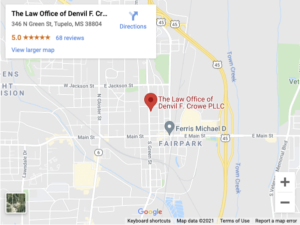Back To Top
UNDERSTANDING HOW FORECLOSURE WORKS?
So, how does foreclosure work?
Foreclosure is handled somewhat differently from State to State, but using Mississippi as an example, here is how it works. When you get far enough behind….usually about 3 months….on your mortgage, to the point where your mortgage lender has reason to believe that you either can’t or won’t pay your mortgage, the mortgage lender starts foreclosure. This is a typically a non-court proceeding.
However, before doing so, you will usually get one or more demands for payment. If you still don’t pay and catch up your mortgage, the mortgage lender will turn the matter over to an attorney who specializes in handling foreclosures. That attorney will sometimes write you to give you one last chance to catch up your mortgage. Then, you will be sent a letter that tells you that the mortgage lender is exercising its right to “accelerate” your mortgage, which means it is exercising its right to declare your entire mortgage due…as opposed to just your delinquent payments. In Mississippi, this is a necessary step before the mortgage lender can start foreclosure. At this point, the mortgage lender will generally refuse to take any partial payments from you because the mortgage lender does not want to do anything to accidentally “waive” its rights to proceed with foreclosure.
After this is done…..in Mississippi…..there are 2 major steps included in the foreclosure process. First, in order to be valid, the foreclosure sale must be advertised for three consecutive weeks before the sale date in a newspaper of general circulation in the county in which the land is located. In addition, one notice must be posted for the same time at the county courthouse door. The notice must name the borrowers who will lose the title The mortgage lender, by its foreclosing attorney, then posts and publishes a Notice of Foreclosure Sale. Second, a copy of the Notice of Sale must be served on you, and…in Mississippi…this gives you about 30 days advance notice of the sale.
The sale is then conducted in a public place. Anyone interested in buying your property comes to the sale and bids on your property. This highest bidder gets your property. The sale must be for sash to the highest bidder.
After the sale, the trustee or substitute trustee must deliver a trustee’s deed to the successful high bidder. The deed should give the names specified in the old deed of trust that was foreclosed on. The trustee’s deed should also give information sufficient to locate the foreclosed deed of trust or mortgage in the deed records.
The money received from the highest bidder is first applied to pay any outstanding real property taxes, and then it is applied toward payment of your debt with the mortgage lender and…if there is enough money….the costs involved in preserving the property and processing the foreclosure. In almost 100% of the foreclosure cases, the amount bid is not enough to pay off all these costs.
A foreclosure sale under a deed of trust is final in Mississippi. There is no right of redemption, that is, you can’t come up with the money after the sale and get your house back by a right of law, after the foreclosure sale.
After my house is foreclosed, how long is it before I have to move out?
We will use Mississippi law to answer this question. In Mississippi….after the foreclosure is complete, someone checks to see if you are still living in the property. If you are still there (and you have NOT filed bankruptcy), the buyer of the property gets the Sheriff involved. The Sheriff would then serve you with a “Notice to Quit” the property, which requires you to vacate the property within so many days. If you don’t vacate within that time, the Sheriff comes and physically throws you out, along with your family and all your belongings. You are literally put out on the street.



